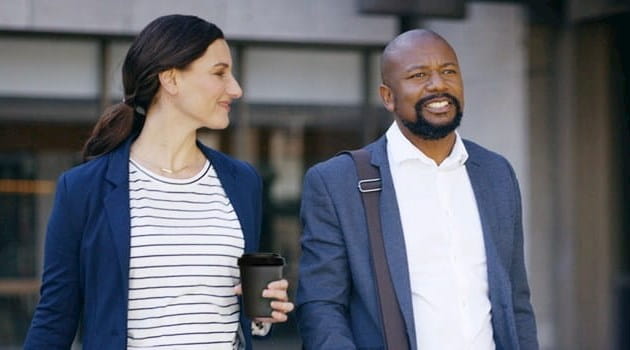Landell-Mills is a Partner and Head of Stewardship at Sarasin & Partners – a global asset management firm, investing £18bn on behalf of charities, private clients, institutions and intermediaries. Her role is to steer the integration of environmental, social and governance matters into the investment process. She is also the lead author of ‘Investor Expectations for Paris-aligned Accounts’ for the Institutional Investor Group on Climate Change.
“My view is that companies absolutely have a responsibility for any adverse impacts they have on society,” says Landell-Mills. “Historically, these issues have been treated in economic terms as externalities, but I think that is changing. An externality is, effectively, a market failure where governments have an important role in intervening.”
She points out that tightening regulations to help mitigate – and hopefully eliminate – those externalities means companies that impose them on society are held accountable. “And clearly that's key for an efficient market economy,” says Landell-Mills. “But I don't think this is limited to climate change. Climate is probably the most urgent challenge we have to deal with. However, there is no doubt in my mind that companies need to be taking on board that accountability and behaving accordingly.”
Legislation and litigation
She points out there are already laws in place in the UK to prompt action. “If you think of the Companies Act 2006, we already have section 172,” says Landell-Mills. This section imposes a duty on directors to act in the way that would most likely promote the success of the company for the benefit of its members as a whole, including having regard to employees, suppliers, customers, the company's impact on the community and the environment.
“Directors must have regard for these broader impacts – there’s a legal obligation to do so – and they must make disclosures on those impacts within their annual report, which is the key statutory document that they present to shareholders,” she says. “What is more, there is a whole array of new requirements and rules coming from the EU Sustainable Finance Disclosure Regulation to the corporate sustainability reporting directive, to the EU taxonomy. All of this is around increasing transparency, of course, but increasing transparency with a view to ensuring accountability.”
We are already seeing litigation in relation to companies’ duty of care to others and the environment, and even human rights laws are being invoked. “Obviously, the Paris Agreement is relevant there too, because if you don't do what you can to act on the signs of climate change, then you may be putting people and their livelihoods at risk. I think companies would be quite bold if they decided to ignore this going forward,” she says.
Science-based commitments
While a lot of the prevailing focus is on the accounts, there is so much more to it than that. Landell-Mills says that directors should be aligned with the Paris Agreement ambitions across all of their activity. “We all focus on the accounts because that's been the bit that has been left out of so much discussion – it is below the waterline. If the accounts don't click into place, all the other elements that are vital to achieving the Paris goals will not follow through. The accounting element is absolutely vital but, clearly, this is also about boards educating themselves and making a commitment.”
Such commitments should be science-based, and interim targets should be set because every year matters in achieving net zero by the date set. “Companies must also outline in detail exactly how those targets will be met, the capex plan, the strategy, and – from a shareholder perspective – how we know that the business will be resilient, and profitable on that pathway – or not,” she says. “And then, of course, companies must make sure that their accounting is aligned with that pathway.”
The company’s commitment, capex expectations and interim landmarks should be clearly set out in the narrative reports in the front half of the company report – which is all in line with the requirements of the framework set out by the Taskforce on Climate-related Financial Disclosures. “These elements need to appear in the governance section, in the strategic section, also in the risk section of course, and then finally in the accounting,” she points out, adding that it is absolutely possible to do all of this under the existing accounting regime.
“It’s all clearly within the standards. You've had the IASB, as well as the IAASB, issuing guidance on the relevance of material climate risks under existing standards. Integrating climate-related factors into the accounting process – into the balance sheet, P&L, and so on – is the same as integrating any other economic phenomena. Why should it be treated differently? Directors and auditors need to start treating this as an economic phenomena and not as some separate environmental occurrence that does not matter to our lives,” she says.
‘We cannot look back to look forward’
Landell-Mills points to the supply chain bottlenecks and the disruption in the gas market as examples of how we are likely to feel the transitional and physical impacts of climate change – and the economic outcomes will swiftly follow. Climate change and the associated policy action will clearly shape the economics of many sectors.
“One of the problems, not just in accounting but also in investment analysis, is that too often we look back to look forward. And what we're talking about here is a structural change, therefore we cannot look back to look forward. We need to think about what is changing, and reflect that,” says Landell-Mills. “But I think this is entirely consistent with existing standards and indeed, if companies are not doing this work, then I think that's where there is a risk of misrepresentation.”
And there is a very clear skills gap, she points out. “This should be a big red flag for directors. And I think it calls for enforcement from the FRC,” she says. “There should be a really big push now to educate, to inform, and therefore to ensure we do not end up in a situation of misrepresentation. Misrepresentation can be extremely dangerous, as we saw in the financial crisis. And let’s remember that we are talking about a massive shift in whole systems. It is not just the oil and gas sector that is affected – a wide range of companies that are part of the fossil fuel value chain are being impacted.”
Landell-Mills urges investors to continue to engage. Indeed, Sarasin has been doing its bit to keep up the pressure on boardrooms. “We have been routinely voting against reappointment of audit committee chairs, as well as auditors, where we perceive the risks to be high, where they are simply not addressing the accounting process, or at least it is not visible to us. Likewise, where the auditor remains largely silent on these issues. We voted against over half the auditor reappointments in companies we identified as materially exposed to climate risks and abstained from a large number of the others,” she says.
“We need to be using our powers as investors. If we do not use our powers, knowing what we know, then we will be held to account. This is about making sure that the system delivers for society.”
COP26: acting together
Find inspiration, information and practical resources to support the goals of the UN Climate Change Conference in Glasgow and explore why it represents a critical time for the profession.



